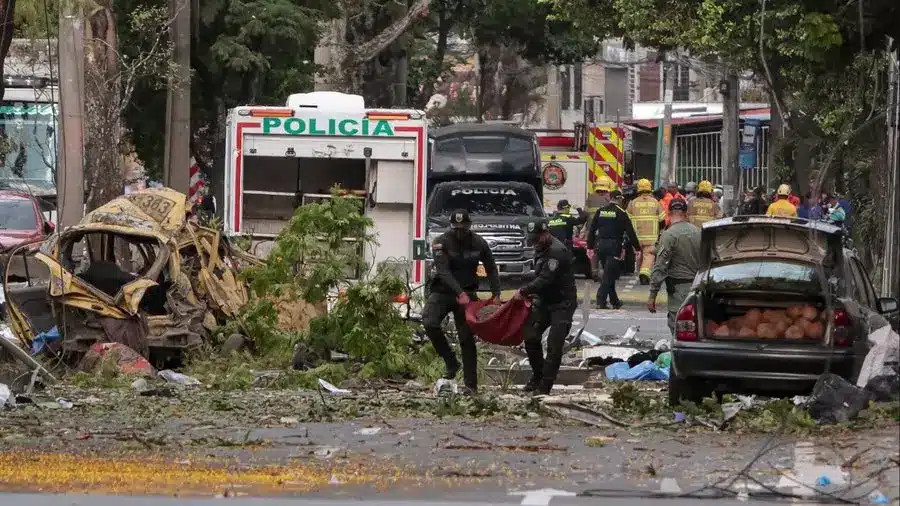
A drone and a vehicle-borne explosion kill at least 18 in Colombia, targeting police and a military facility. Photo: @theblazetrends.

Orinoco Tribune – News and opinion pieces about Venezuela and beyond
From Venezuela and made by Venezuelan Chavistas

A drone and a vehicle-borne explosion kill at least 18 in Colombia, targeting police and a military facility. Photo: @theblazetrends.
At least 18 people were killed and dozens injured in two coordinated attacks in Colombia, attributed to dissident factions of the former Revolutionary Armed Forces of Colombia (FARC). One attack targeted a police helicopter with a drone, while the other involved a vehicle-borne explosion near a military facility.
In Cali, Colombia’s third-largest city, a car packed with explosives detonated near a military aviation school this past Thursday. According to the mayor’s office the bombing killed six people and injured 71.
Before the car bombing, a National Police Black Hawk helicopter conducting a coca leaf eradication operation was downed by a drone in Amalfi, Antioquia, resulting in the deaths of 12 officers. Colombian President Gustavo Petro attributed both attacks to FARC dissidents who rejected the 2016 peace agreement, which ended decades of internal conflict claiming over 450,000 lives.
Petro reported on social media platform X that the helicopter was transporting personnel to an area in Antioquia for coca eradication when it was struck. Antioquia Governor Andres Julian confirmed that the drone targeted the aircraft while flying over coca crops. Defence Minister Pedro Sanchez noted that the strike caused a fire on the helicopter.
Initially, Petro blamed the Gulf Clan, Colombia’s largest active drug cartel, suggesting the helicopter attack was in retaliation for a seized cocaine shipment. Following investigations, a suspect detained after the Cali car bombing was identified as a member of the Estado Mayor Central (EMC), a federation of FARC dissidents linked to drug traffickers.
Both FARC dissidents and the Gulf Clan operate in the Antioquia region. President Petro announced that he will request that both groups be “considered terrorists and pursued anywhere on the planet.”
Coca leaf cultivation in Colombia reached a record 253,000 hectares (625,000 acres) in 2023, according to the United Nations Office on Drugs and Crime, highlighting the ongoing challenge of controlling drug production in the country.
The attacks underscore Colombia’s persistent security challenges, where armed dissidents and drug cartels continue to threaten law enforcement and public safety amid rising coca cultivation.
(Telesur)